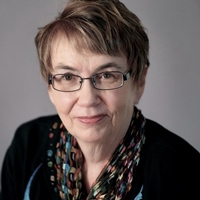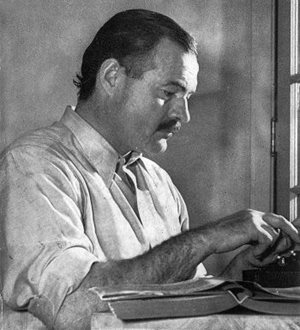15 December 2020
An Award-Winning Novelist on How to Get Started, and How to Keep Going
By Felicia Campbell
[9 minute read]

The two greatest challenges that face writers (or anyone undertaking a major project) are finding the right time to begin and then figuring out how to finish strong, even after the initial excitement has worn off. For advice on where to begin and how to prevail, we asked an expert in writing new chapters, both on the page and in life.
.jpeg)
Carolyn Wheat turned a career in criminal defense into award-winning fiction with her Cass Jameson mysteries. Set in the gritty world of Brooklyn night court, two of the books were nominated for Edgar awards, and her numerous short stories have earned Agatha, Anthony, Shamus, and Macavity awards. Her passion for writing has been outshined only by her love of teaching as she guides aspiring writers with her non-fiction book, How to Write Killer Fiction, writing workshops, and writing courses at UC San Diego Extended Studies.
Carolyn, your background is in criminal law; how did you transition into writing?
I was always a mystery reader, and writing my own mystery novel just seemed the thing to do. My mother loved mystery, so when I began to transition from children's books, I explored her bookshelves. Then I went through the entire mystery section of the Toledo Public Library.
Long before I was a lawyer, I loved Perry Mason. (The books. The television series hadn't happened yet.) He was such a great character. And once I became a criminal lawyer, it gave me a natural protagonist: a defense lawyer, like me, who solved crimes.
What experiences and skills did you gain as a lawyer that have helped you in your new career as a writer?
As an appellate lawyer, I learned to write organized briefs, and that training turned out to be quite useful in planning my novels. As for my experiences in the courtrooms and holding pens of the Brooklyn court system, some of them turned up in the books.
Reading mystery must have helped prepare you almost as much as your legal experiences.
If you're going to write in a genre, you need to know what your reader wants and expects. The best way to know that is by being that reader yourself. If you haven't read widely in your genre, you are in danger of coming up with an idea you think is original and clever but is actually a genre cliche. You won't know that unless you read.
What drew you to crime? Both as a lawyer and as an author.
Rumpole of the Bailey says: "If you're tired of crime, you're tired of life." Crime, especially murder, is like a crucible of human nature. Every possible motive is there, every emotion taken to its extreme. How can anyone not be interested in that?
They say there is no right time to start writing or to start any new project. Would you say that's been true to your experience?
Yes. And that, in my view, is because the word "start" has many possible meanings. If someone thinks of "starting" as a heavy commitment of time and energy, it becomes harder to make that start and all too easy to put it off until the time is right. But if by "start" you mean letting the idea simmer in the back of your mind or jotting a few notes on paper, you can always start at any time. Let the start be whatever you need it to be, and then build from there. The journey begins with one step. Be willing to start small.
How did you get started on your first book?
I didn't know what I was doing. I was working, and I had all these notes. I took a sabbatical to write my first novel, and on the very first day, I looked down at my outlines and notes and realized, oh, now I need to write my first sentence.
I went straight to the library and began reading all the first sentences of every book in the mystery section. As I read them, I began thinking about what I wanted mine to be.
I picked up one of Robert B. Parker's books (he was a mystery writer who wrote over 40 detective novels), and something about the feeling of that sentence got me started. I wrote and wrote, and then, about three-quarters of the way through, I realized I needed to reorganize. I did that and then pressed on through to the end.
That method has worked well for me ever since, but everyone has to find their own route, try things and figure out what works for them.
 Hemingway famously suggested that: "The best way is always to stop when you are going good and when you know what will happen next. If you do that every day… you will never be stuck." In practice, he suggested that writers always stop before the end of a chapter or after the first few lines of a new scene, so when they return to the work the next day, they have a jumping-off point. Do you employ a method like this?
Hemingway famously suggested that: "The best way is always to stop when you are going good and when you know what will happen next. If you do that every day… you will never be stuck." In practice, he suggested that writers always stop before the end of a chapter or after the first few lines of a new scene, so when they return to the work the next day, they have a jumping-off point. Do you employ a method like this?
I used to say that there were two kinds of writers: the blank-pagers and the outliners. The outliners like to create a blueprint before they start writing while the blank-pagers sit down and write and go where the story takes them.
Hemingway is talking about a third approach that I call "headlights in the dark." It starts with the blank page, but then the writer turns on the metaphorical headlights and sees a bit into the next section of the work. It's not a full outline, but it's not a completely blank page either. You let the headlights of what you've already written illuminate the next little bit.
Use it if it works for you. I'm an outliner, so I always know what I intend to have come next.
What's your strategy for finishing a book once the excitement of getting started wanes?
Again, I think outliners and blank-pagers face different challenges. For the outliner, the issue is keeping the story and characters fresh when you've already plotted it out. I suggest continually digging back into the motivation for writing the book. What drew you to the story and the characters? What speaks to you in the setting or the historical period? Keep connecting to the factors you love, and they will seep into the writing.
For the blank-pager, the best advice I can give is to write as fast as possible. Get it on the page. Down and dirty if you have to, but keep the cursor moving. You can't rewrite until you have a first draft, and rewriting is where your novel will truly come to life. Speed is your friend. Let the momentum carry you, and don't stop to think too much.
Can you give me an example of a time you had to reconnect with your original inspiration?
The middle is hard. At the beginning, you have a head of steam, and at the end of you see the light at the end of the tunnel, but the middle? The middle is tough.
I was never fast, so by the time I was in the middle of a book, I'd have lost track of my original inspiration. So, I would look over my early notes. What is really amazing is that often I would find the solution to a problem I'd been struggling with. It turns out I'd solved it already when I first began. Rediscovery sometimes fixes everything.
Other times, the thing to do to get out of a slump is to just put down your work and go walk on the beach or in the woods. Take a break so you can come back at it from a different place. Sometimes you can reconnect by going into a different place in the book. If you have a clear vision for the ending, write that scene! Get yourself into a spot in the book that you can connect with.
Does your love of teaching interfere with your love of writing?
Teaching has now become more of a passion for me than writing. I've had students who have been published, which is wonderful, but I am just as proud when any of them simply finish something of great quality.
I teach a three-part series, Novel Writing I, II, and III. The first focuses on the beginning, the second on the middle, and the third on creating strong endings. There are also a few sessions on publishing. Over these three courses, I've even had some students finish drafts, though they write a great deal outside of class.
What's one thing you wish all new writers came into your class knowing?
Novels are big. They demand a huge amount of time and energy, and attention. You have to accept that before you begin.
What advice would you offer to people who want to start writing in the new year or make any big life change?
I just made a big life change. I moved from San Diego to Ohio to be near family. It felt like the right thing to do at the right time. As for starting a writing project, I would say (of course), "Go for it!" I would also offer the following pieces of advice:
-
Start small. By this, I don't mean write a short story, just let your initial goals be entirely and easily reachable. Once you have accumulated success at reaching those goals, you can make them harder and more challenging.
-
Allow imperfection. In fact, invite and embrace imperfection. Let the draft be messy. Let the ideas float all over the place. Cast the net wide and let all ideas come out to play.
-
Definitely consider taking a class. This gives you instruction on craft, which is important, but it also helps in setting goals and meeting deadlines. The extra bonus is meeting other people who are also trying to write.
-
Be aware that it's a process and allow yourself to practice different approaches. Play with an outline; try out the blank page. Learn your own rhythms and what works for you.
-
Read. Read. Read.
Take the first step towards a new chapter in your life with a class at UC San Diego Extended Studies whether you're interested in a course in digital design or a writing workshop, there is no better time to start than right now.